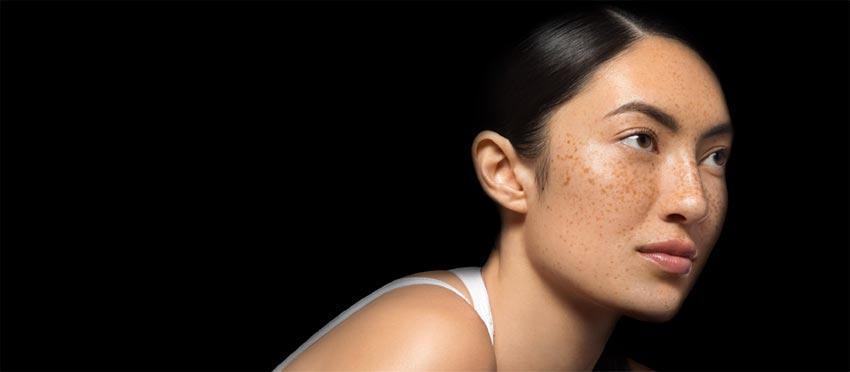2 min read
Myths about oily skin
05/20/2022 / Last Edited 06/02/2025You’ve probably heard a lot about what oily skin needs–but what’s the truth? Let’s find out together!

Put down the harsh cleansers – we’re busting oily-skin myths.
story highlights
- Oily skin needs balance
- Excess oil can indicate that skin is actually dehydrated
- Oily skin is genetic – but there’s a lot you can do to keep oil in check
There’s no shortage of myths when it comes to oily skin, which can make treating it an exercise in frustration. Read on to learn the truth about excessive oil production – and further your understanding of how to really keep oil under control.
Myth: Oily skin needs more aggressive cleansers than other skin types. It should be squeaky clean!
Fact: Oily skin actually needs balance. Over-drying cleansers strip skin of natural sebum and lipids, triggering a cycle of dehydration that can irritate skin and make chronic oiliness worse. Instead, pick a cleanser that removes excess oil without stripping skin’s natural lipid barrier – like Special Cleansing Gel.
Myth: Oily skin doesn’t need moisturizer – that will just make it more oily.
Fact: The opposite is often true! In fact, people who struggle with oily skin often actually have dehydrated skin (skin without enough water); their skin then tries to compensate by producing too much oil. As with cleansing, the key is to find the right balance – so look for a truly oil-free moisturizer, like Active Moist.
Myth: A little sun exposure can help dry up oily skin.
Fact: Unprotected sun exposure won’t help oily skin – it will only cause further damage. While it may seem the sun provides a temporary “drying” effect, it’s actually just putting skin into a dehydrated state. Eventually sebaceous glands will fire into overdrive to help replace lost oil, resulting in more oil on the surface than before.
Myth: If you want to change oily skin, change your diet.
Fact: Oily skin is genetic. It’s also often tied to hormones, which can influence skin’s oil production. So while it’s true that our lifestyle can often impact our skin health, the best thing you can do for oily skin is strive for balance.





